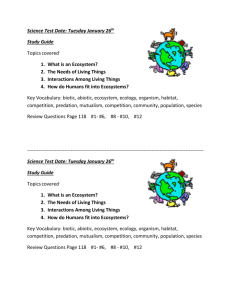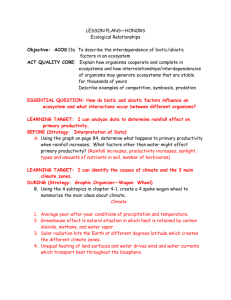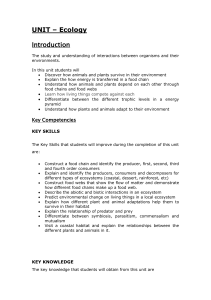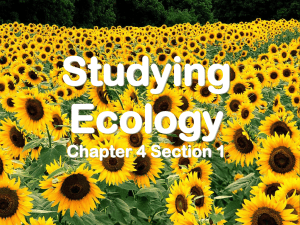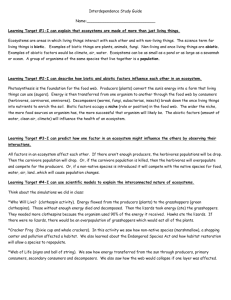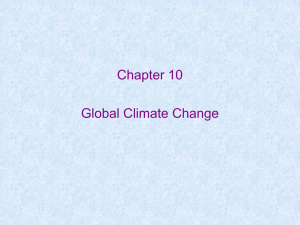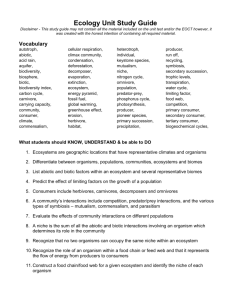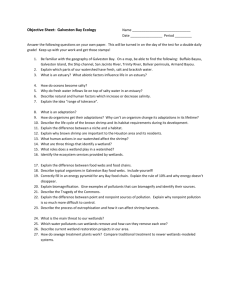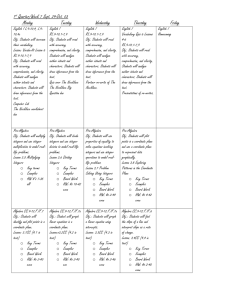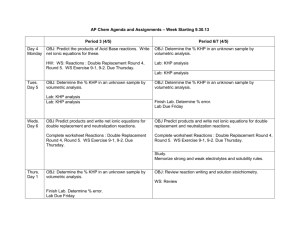biology - SharpSchool
advertisement
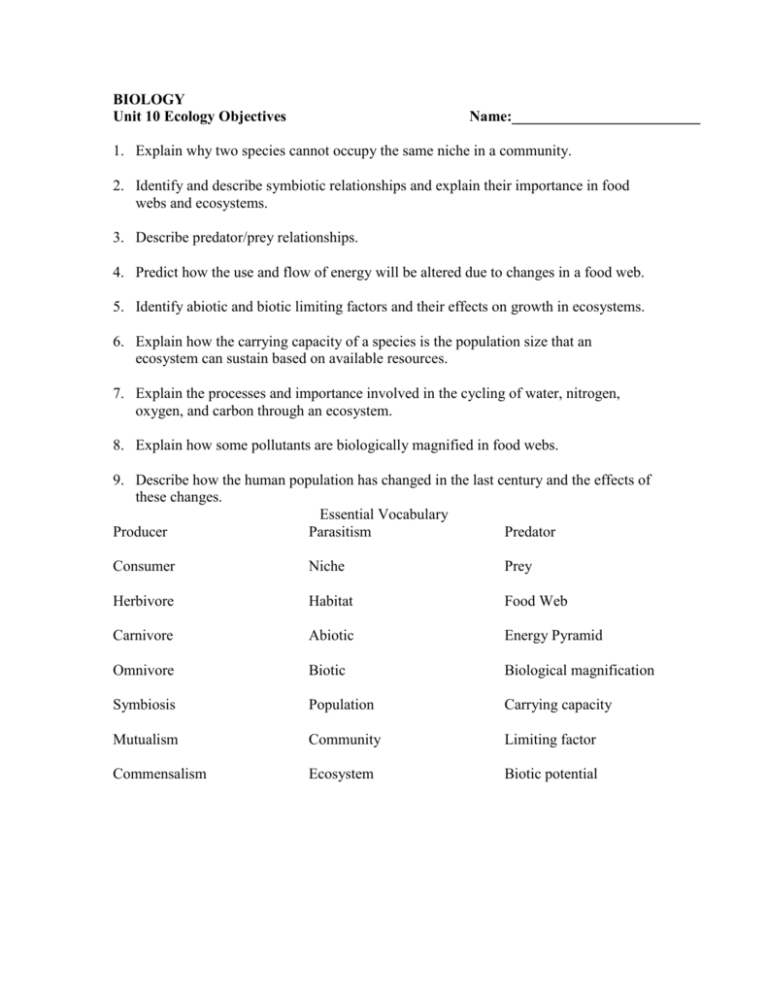
BIOLOGY Unit 10 Ecology Objectives Name:_________________________ 1. Explain why two species cannot occupy the same niche in a community. 2. Identify and describe symbiotic relationships and explain their importance in food webs and ecosystems. 3. Describe predator/prey relationships. 4. Predict how the use and flow of energy will be altered due to changes in a food web. 5. Identify abiotic and biotic limiting factors and their effects on growth in ecosystems. 6. Explain how the carrying capacity of a species is the population size that an ecosystem can sustain based on available resources. 7. Explain the processes and importance involved in the cycling of water, nitrogen, oxygen, and carbon through an ecosystem. 8. Explain how some pollutants are biologically magnified in food webs. 9. Describe how the human population has changed in the last century and the effects of these changes. Essential Vocabulary Producer Parasitism Predator Consumer Niche Prey Herbivore Habitat Food Web Carnivore Abiotic Energy Pyramid Omnivore Biotic Biological magnification Symbiosis Population Carrying capacity Mutualism Community Limiting factor Commensalism Ecosystem Biotic potential BIOLOGY Unit 10 Ecology Notes Name:_________________________ Population: Community: Habitat: Ecosystem: Obj. 1: Explain why two species cannot occupy the same niche in a community. Niche: Examples of the components of a niche: Obj. 2: Identify and describe symbiotic relationships and explain their importance in food webs and ecosystems. Symbiosis: Symbiotic Relationship Definition Commensalism Mutualism Parasitism Obj. 3: Describe predator/prey relationships. . Organism 1 Organism 2 Obj. 4: Predict how the use and flow of energy will be altered due to changes in a food web. Producer: Consumer: Primary: Secondary: Tertiary: Food Web: Energy Pyramid: 10% Rule: Obj. 5: Identify abiotic and biotic limiting factors and their effects on growth in ecosystems. Abiotic: Biotic: Obj. 6: Explain how the carrying capacity of a species is the population size that an ecosystem can sustain based on available resources. Carrying capacity: Limiting factor: Biotic potential: Obj. 7: Explain the processes and importance involved in the cycling of water, nitrogen, oxygen, and carbon through an ecosystem. The Water Cycle Evaporation: Condensation: Precipitation: Transpiration: The Carbon Cycle The Oxygen Cycle The Nitrogen Cycle Obj. 8: Explain how some pollutants are biologically magnified in food webs. Biological magnification:
